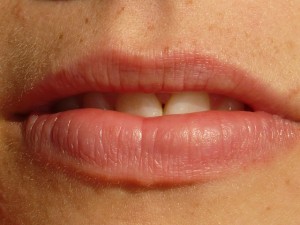- Calls to this hotline are currently being directed to Within Health, Fay or Eating Disorder Solutions
- Representatives are standing by 24/7 to help answer your questions
- All calls are confidential and HIPAA compliant
- There is no obligation or cost to call
- Eating Disorder Hope does not receive any commissions or fees dependent upon which provider you select
- Additional treatment providers are located on our directory or samhsa.gov
College Students: Returning Home for Break and Maintaining Recovery
 Making it through finals and to Christmas break can be one of the most relieving things for any college student. You have made your way through another semester and are rewarded with a break from school to recharge, relax, and catch up on much needed sleep.
Making it through finals and to Christmas break can be one of the most relieving things for any college student. You have made your way through another semester and are rewarded with a break from school to recharge, relax, and catch up on much needed sleep.
If you are in recovery from an eating disorder, you will quickly realize that there is no “break” from recovery. Staying in recovery from an eating disorder is a lifelong process, and your commitment to the journey is essential for sustaining the hard work that you have put into your treatment.
Making Constant Shifts Can Be Challenging in Recovery
Regardless of where you might be in the recovery process, making the shift to college, back home, and back to college again can be challenging while maintaining treatment for an eating disorder. There are many things you can do to make any transition smoother and ensure that you are upholding your recovery through each season of life.
While at college, you have likely adapted to a schedule that has supported your recovery, such as following with your meal plan, meeting regularly with your therapist, and staying connected with a support group. Your college campus and new group of friends can quickly feel like your home, and it can be challenging to take a hiatus from your “new normal” to go home for break.
Challenges You May Encounter at College
Some of the challenges you might encounter during your any break from college might include the following:
Being out of your normal routine:
 In college, you likely developed a routine or schedule that you followed on a daily basis. This might have helped you have regular times for eating, having appointments, etc. Taking a break from college might also mean straying from your typical routine.
In college, you likely developed a routine or schedule that you followed on a daily basis. This might have helped you have regular times for eating, having appointments, etc. Taking a break from college might also mean straying from your typical routine.
While you are at home or traveling, be conscientious about eating regularly throughout the day. Be intentional about making self-care a priority to prevent your eating disorder from gaining a foothold.
Exposure to increased stressors:
As you settled into your college life, you have likely made new friends who have become your family away from home. Hopefully you have also created a network of support for your eating disorder recovery. Sometimes, visiting home or seeing old friends can trigger emotions you may have not been exposed to for a long time.
Holidays and celebrations might also bring about more chaos, stress, or anxiety. Put your positive coping skills to use when you recognize a trigger and practice working through hard emotions or stressors you might experience.
Separation from primary support group:
Is your primary support group on or around your college campus? This may include your therapist or counselor, dietitian, medical doctor, mentor and support group. If you regularly meet your support team, it can be challenging to take a break from a regular treatment schedule.
Be sure to schedule your appointments with your treatment team before and after you plan to leave for break to keep a continuum of care. Be prepared with resources that can help you should you experience a setback while on break, such as a contact for an accountability partner or helpline.
Relapse:
 While you plan for the best, there is the possibility of relapsing into eating disorder behaviors while on break. If this happens to you, do NOT give in or give up.
While you plan for the best, there is the possibility of relapsing into eating disorder behaviors while on break. If this happens to you, do NOT give in or give up.
Catastrophic thinking may create the mindset that, “I completely blew it”, and “It’s over”!
However, nothing could be farther from the truth. You can pick yourself up and start right back where you left off. Make a call to your counselor, chat with a trusted friend, get back to following your meal plan.
Be Diligent About Recovery
Take the next step to keep going in your recovery. Relapse does not mean the world has ended. Learn what you can from what you have experienced and move on.
Vacation breaks during college can be fun-filled and refreshing for any student. If you are in recovery for an eating disorder, be diligent about maintaining your recovery, no matter where you are!
Community Discussion – Share your thoughts here!
Are you a college student who is in recovery from an eating disorder? What have you done to help maintain your recovery during breaks?

